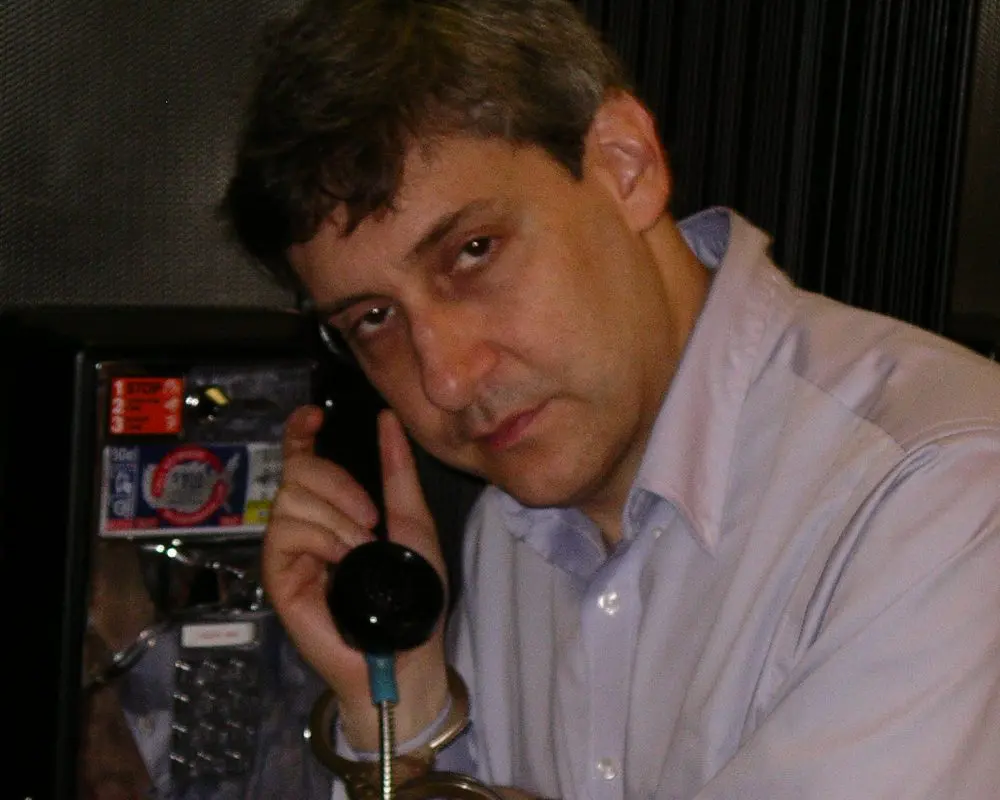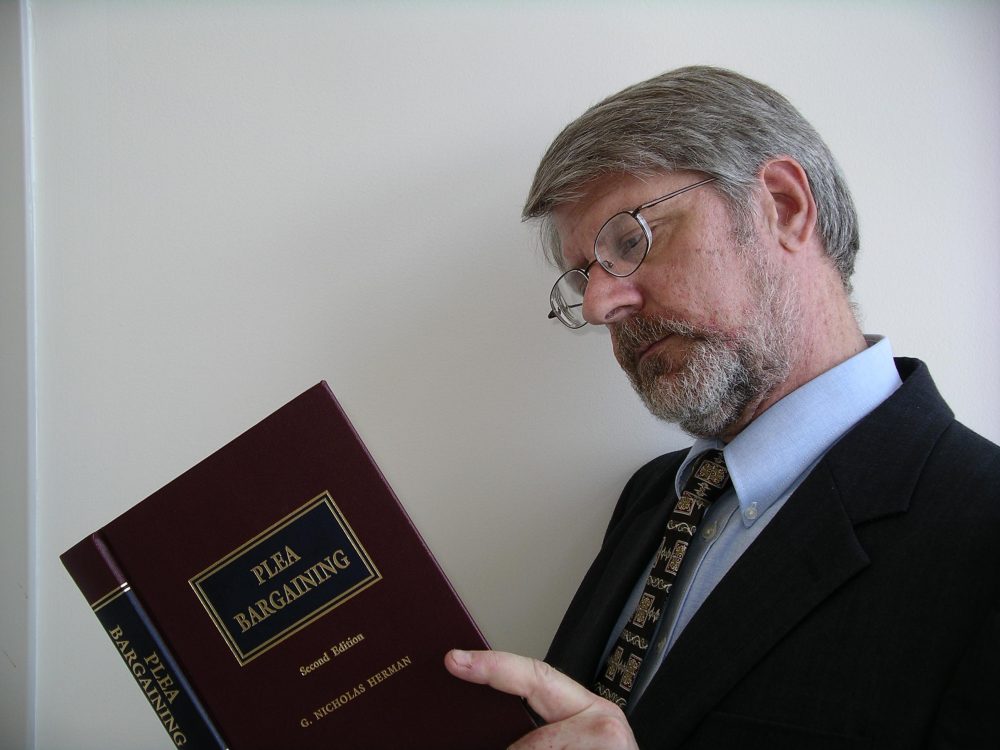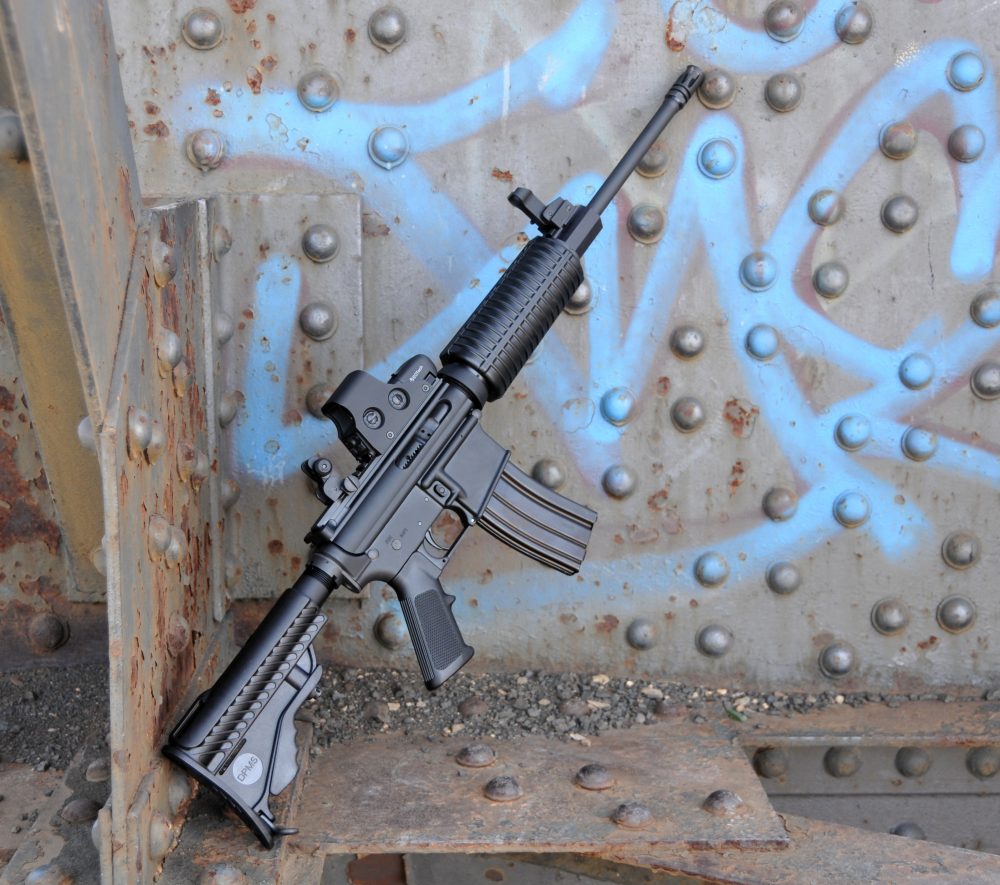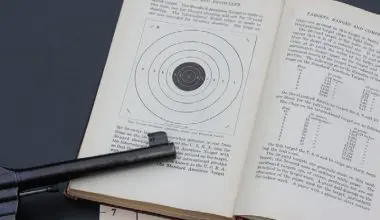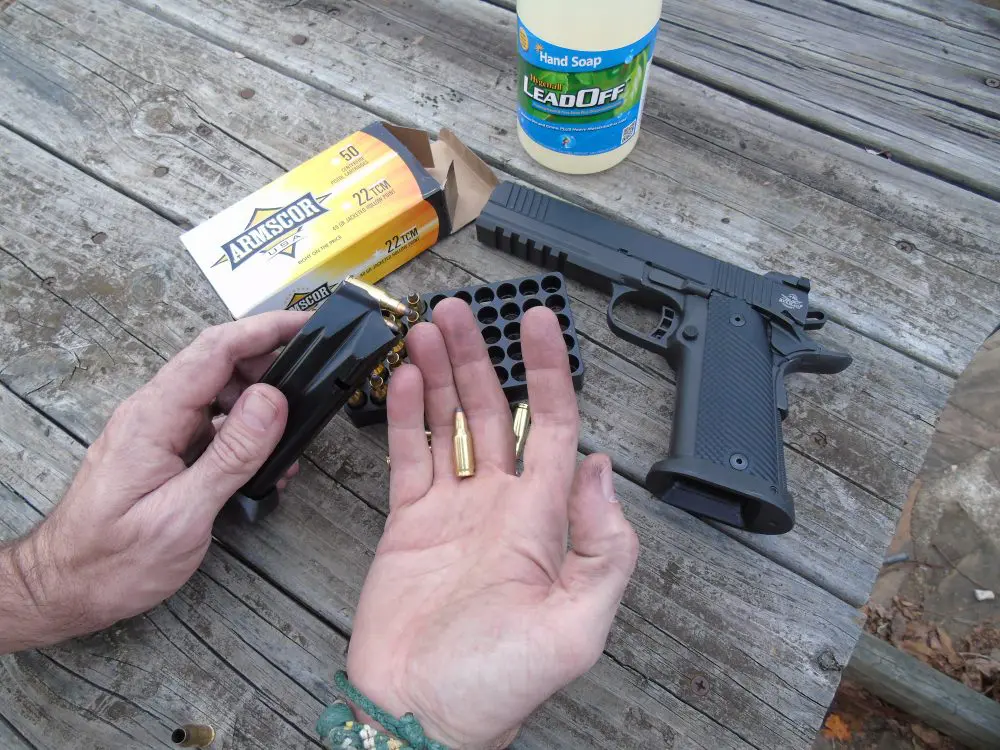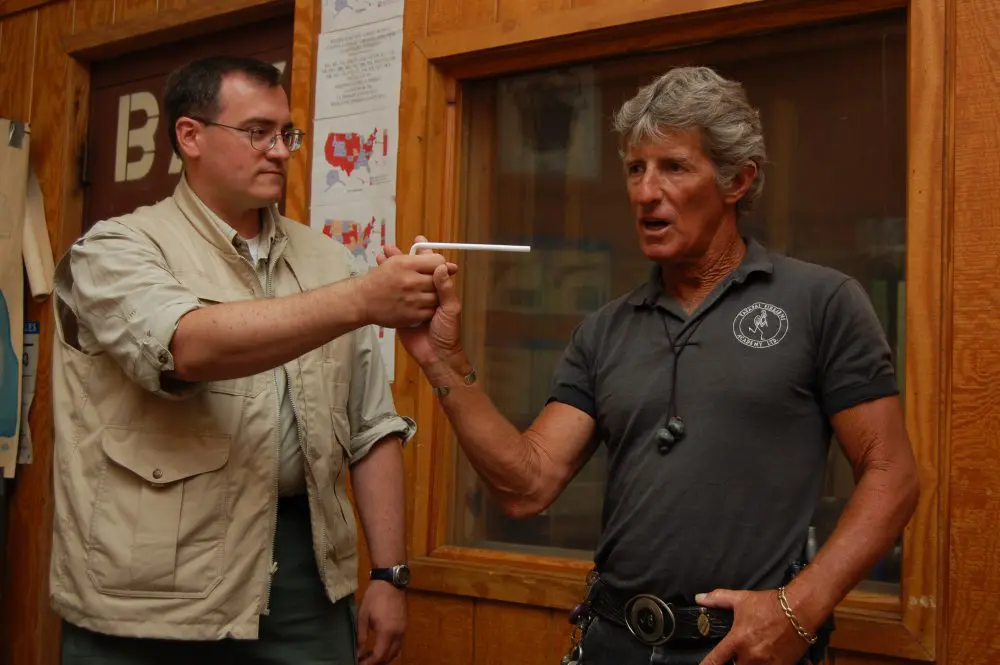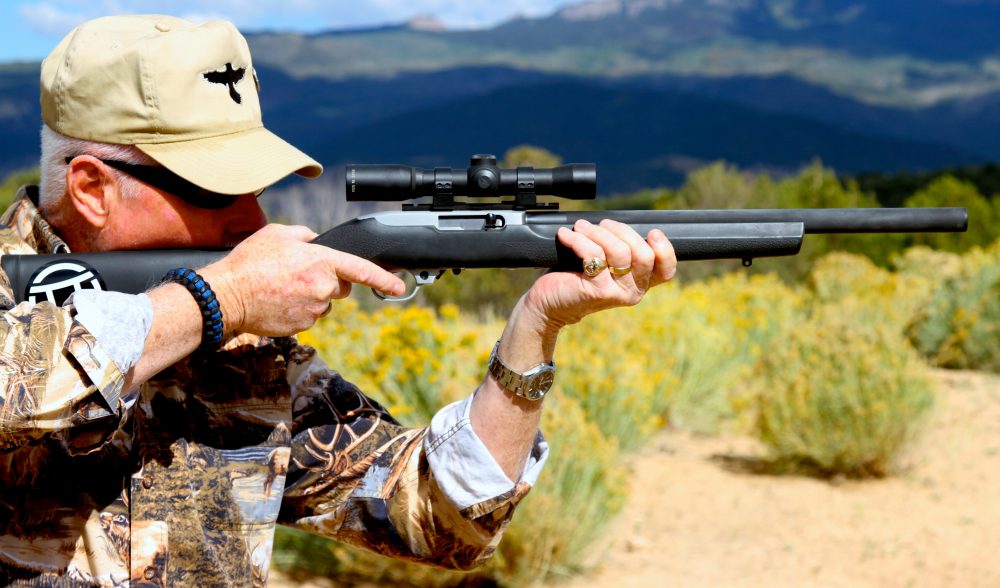If you’re arrested, you may only get one phone call, so call a responsible person who’ll be available to answer.
Obviously, you want to do whatever you reasonably can to avoid using deadly force. But if you are forced to shoot someone in self-defense, you need to know what to do after the shooting.
Let’s look at some legally and tactically sound suggestions for what to do after a shooting if you’re an off-duty/plainclothes police officer or civilian firearm licensee. (Many suggestions apply to uniformed officers, too.)
Table of Contents
YOUR GOALS AFTER A JUSTIFIABLE SHOOTING
- Don’t get shot by the suspect or the suspect’s accomplice.
- Don’t get shot by mistake by responding officers.
- Tell and show witnesses, responding officers and investigators that you are the innocent crime victim.
BEFORE RESPONDING OFFICERS ARRIVE
Immediately after a shooting:
Reload if there may be additional threats and scan the area briefly for them, but don’t lose sight of the person you’ve shot.
Move behind cover and try to position yourself so that you can see responding officers before they see you; you don’t want officers to surprise you, so that you reflexively turn on them holding a gun. If the suspect is conscious, have them turn their face away from you, so they can’t see what you’re doing.
It’s usually safest not to approach the person you shot, but try to see where their weapon is. You want to see if they make any move toward it to attack you, and it’s vital evidence that they were armed and a threat to you—you don’t want it lost or stolen. An “unconscious” or “incapacitated” suspect could be faking; be careful.
Help keep other people at the scene safe. Say to them in a loud, clear voice: “Stay back. He still has a weapon!” “Look around and see if has he hurt anyone else?” “I’m a police officer,” or “I have a license to carry a firearm.” Show them your shield/badge/ID/license if practical.
If there are others present, pick three of them and say: “You, you, you (point directly at them, but not with your gun!). Call the police and call an ambulance.” Don’t just say “Call 911,” since that doesn’t work everywhere. Tell them to give your description to police.
If you shot your assailant inside a business (bank, bar, convenience store, etc.), have the store manager make the call, since they’ll have the most credibility with the police. While they’re calling, watch out for other robbers pretending to be customers, as they may try to shoot whoever calls the police. If you have friends or family with you, try to keep them out of potential lines of fire.
This lawyer’s studying plea bargains. If you don’t want your lawyer doing the same, watch what you say and do after a justifiable shooting.
WITNESSES
Everyone at the scene is a potential witness, and may be crucial to confirming your innocence.
Note who the witnesses are, but don’t try to tell them what to say. They’ll resist it and think that you’re trying to cover something up. You may ask that they stay (in a safe area) until officers arrive, or ask who they are and how to contact them. Be polite: “I know that this was very upsetting, but the police may need to contact witnesses. Would you please write down your name and contact information?”
Never assume that there are no witnesses. There may be witnesses you didn’t see, with video or cell phone cameras. Virtually every business now has surveillance cameras. Before you say anything for the record about the shooting, be sure it’s accurate: the camera doesn’t blink.
Never, ever, tamper with or destroy evidence. Never put a knife or gun near an unarmed attacker that you justifiably shot. Planting fake evidence is a crime, and makes investigators and jurors think that you were trying to cover up a crime.
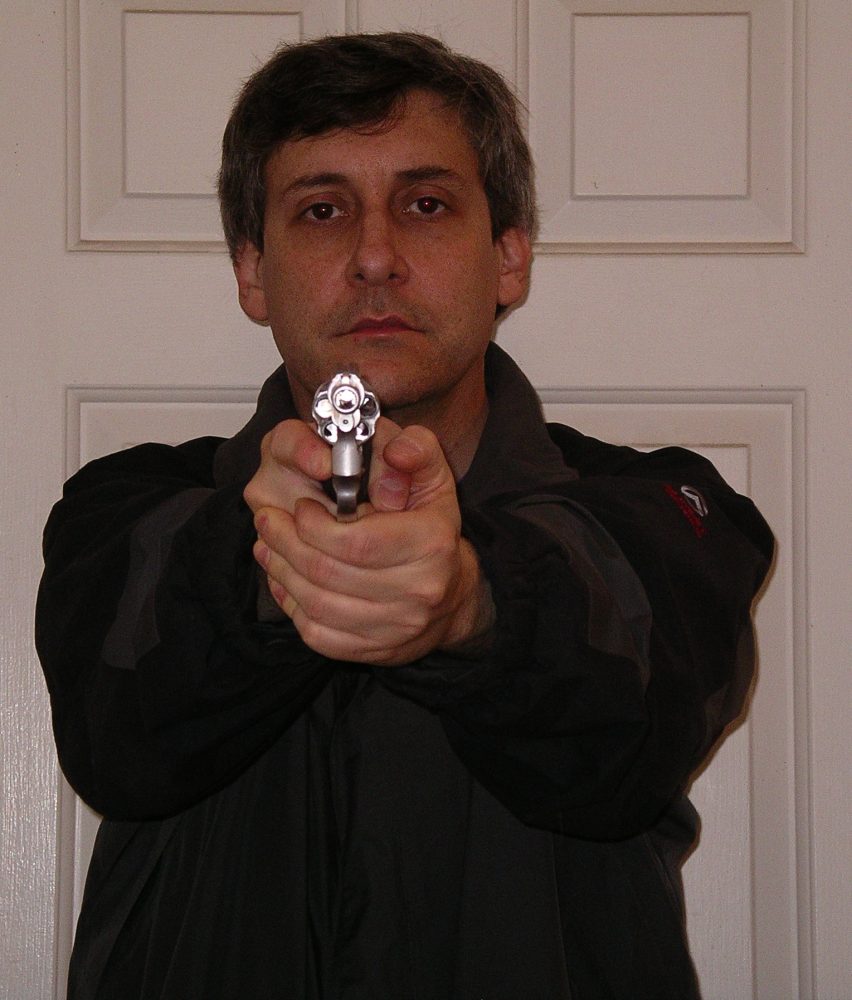
THE THREE RINGS OF SAFETY
Don’t get shot by responding officers. Use what police trainer Massad Ayoob calls the “three rings of safety”: “The Message,” “The Welcoming Committee” and “You.”
THE MESSAGE
Even if you’ve already had someone call the police and an ambulance, call yourself, if you safely can.
First say where you are, who you are and then very briefly describe the situation, e.g.: “A man with a gun tried to rob me, and I shot him to defend myself.”
Describe yourself and the person that you shot, so that responding officers know that you’re the good guy, but don’t count on this description alone to protect you.
If possible, stay on the phone with the 911 operator until officers arrive.
THE WELCOMING COMMITTEE
Have someone meet the responding officers before they see you, tell them that you’re the good guy, describe you, and say exactly where you are. It’s best if it’s someone the officers know and trust, like a store manager.
YOU
You are your most important line of defense. If you safely can, holster your gun or put it in your pocket. Avoid letting officers see you with a drawn weapon. Identify yourself clearly to responding officers. Say who you are and show who you are: have your shield/badge and/or your ID/firearm license out and identify yourself verbally.
If you’re a law enforcement officer, say “I’m a police officer,” or whatever your title and agency are. Be formal and professional, so that everyone understands you. This is especially important if you’re in a shooting outside your jurisdiction. Using your agency’s slang to ID yourself may confuse responding officers from another agency, who may doubt your ID.
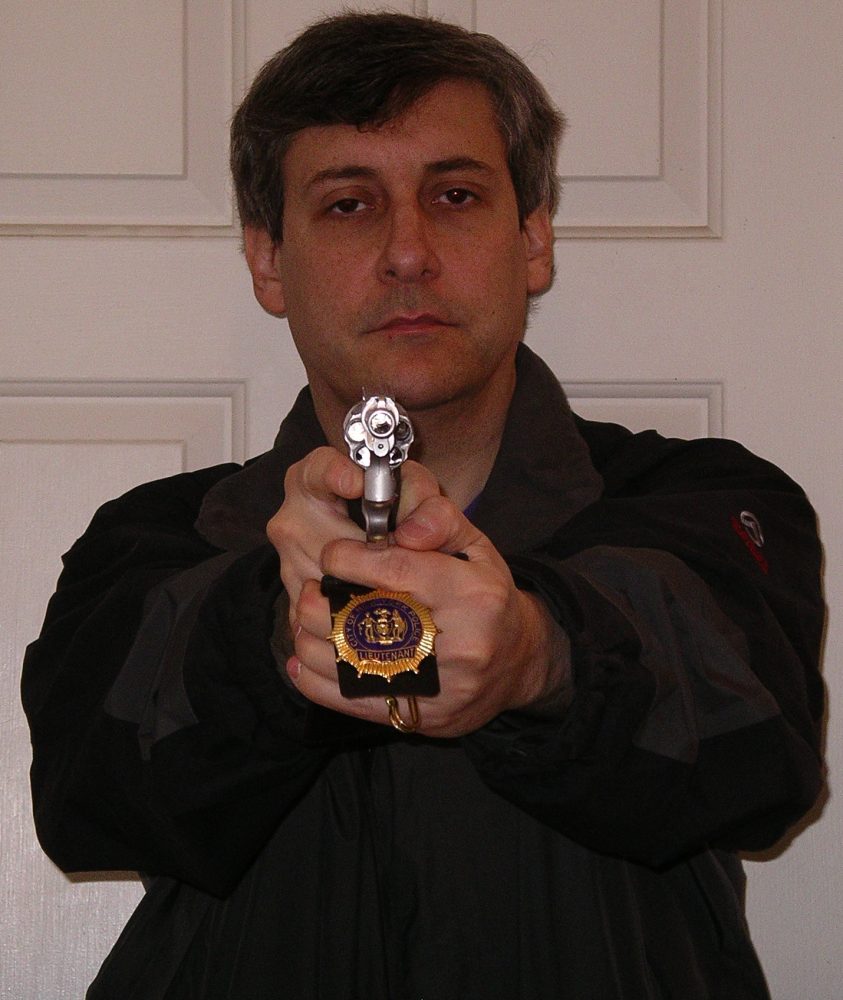
DO WHAT THE RESPONDING OFFICERS TELL YOU
If you’re off duty or in plainclothes, the responding officers are in charge. Don’t argue with them.
You can politely tell officers if something they want you to do could be dangerous (e.g., lowering your firearm if you’re holding an unsearched, possibly armed suspect at gunpoint), but if they tell you to do something, do it, unless you want them to shoot you.
If they tell you to drop your gun, drop it. It’s safest to turn it sideways so that it falls flat, rather than on the hammer or rear of the slide. Try to drop it outside of the suspect’s reach; you can also step on it to make sure that the suspect can’t get it. If your gun is holstered, say: “Officer, my gun is holstered; I’m slowly raising my hands.”
ONCE THE SCENE IS SECURED
The responding officers will ask you what happened. Many people advise: “Say nothing to the police.” That’s guaranteed to get you arrested and make you look guilty. If you were a responding officer, what would you think if you found someone with a gun standing over a dead body, and they refused to say anything? If you do talk to them, always tell the truth to responding officers and investigators. You may choose not to talk about something, or decline to answer a question, but never lie.
Don’t make a good shooting into a bad shooting with a small lie at the beginning. Investigators don’t care if you were cheating on your spouse or were someplace you shouldn’t have been; don’t cover up a personal mistake with a lie that can send you to jail. Special note for police officers: If the shooting was legally justified, but you violated some departmental rule, don’t “improve” your story.
You need to tell the responding officers:
- Any information they need from you immediately for everyone’s safety (e.g., descriptions of other suspects who’ve fled so that they can be transmitted over the radio).
- Why you’re the good guy and a crime victim. Explain very briefly, e.g.: “He had a gun and tried to rob me. I was in fear for my life. I had no choice but to shoot him.” “He attacked me with a knife and I shot him. I was afraid he would kill me; I had no alternative.” It’s perfectly OK to say that you were afraid. Don’t answer specific questions about exactly how many shots were fired, exactly how far you were from your attacker, exactly how long events took, etc., and don’t volunteer this information. You’ll be under a lot of stress, and your memory and perceptions may not be perfectly accurate.
- Where to find evidence and witnesses. Point out evidence (the suspect’s weapon, property that the suspect tried to steal, your injuries or torn clothing from the suspect’s attack, etc.). Point out any witnesses at the scene; give names or descriptions of any witnesses who left.
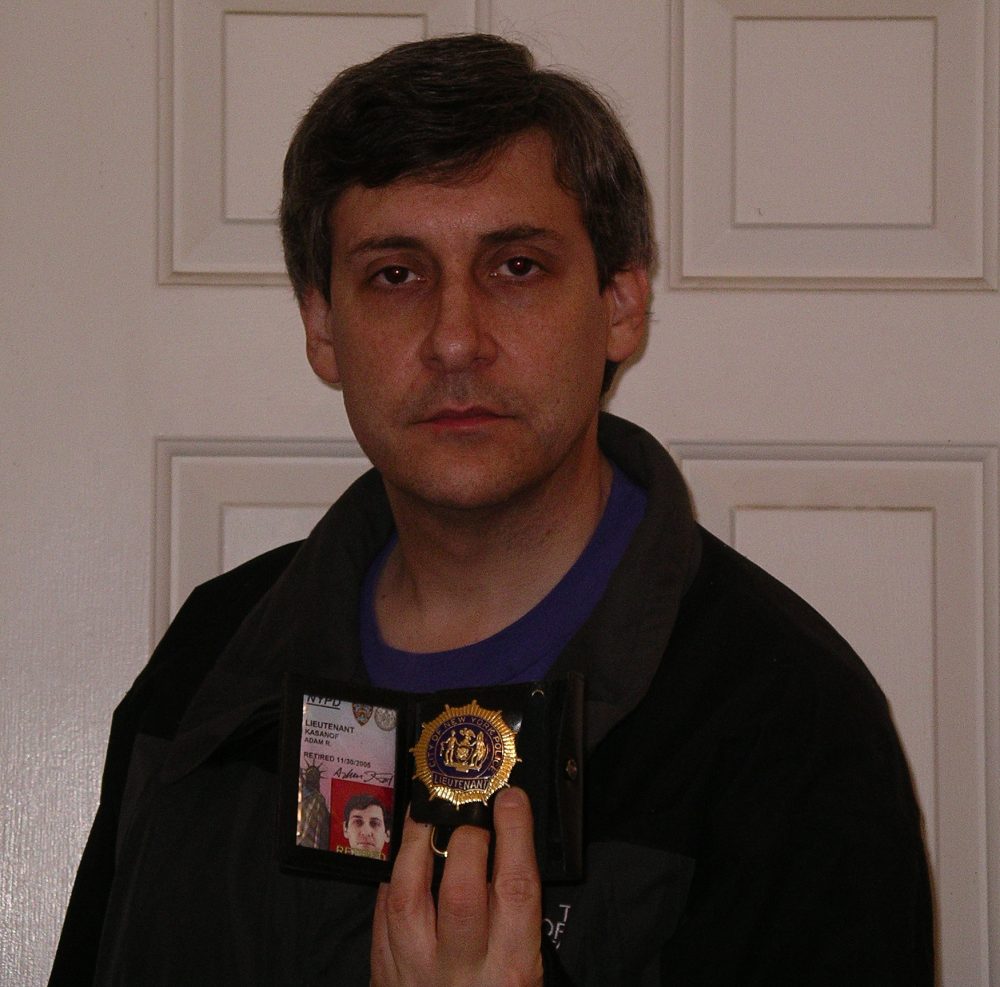
If the officers press you for more, consider saying something like: “Officer, I haven’t done anything wrong, but you know how serious this is. I’ll be able to give you a more detailed statement and answer more questions in 24 hours, after I’ve talked with my lawyer.”
You can tell investigators the same brief story that you told the responding officers, but again, avoid answering very specific questions.
[Legal Note For Police Officers: everyone has the Fifth Amendment right to remain silent. But the U.S. Supreme Court has determined that if you’re a police officer, your agency can require you to answer questions, or be fired (Garrity v. New Jersey, 385 U.S. 493, 1967). But if they do this, then whatever they compel you to say can’t be used as evidence against you in a criminal prosecution. Neither can any other evidence they get because of your compelled statements. (You could still choose not to answer, and your agency could fire you). Find out now about your agency’s policy on questioning officers involved in shootings and discuss it with your union representative and a knowledgeable lawyer.]
Ask to go to the hospital. You may have been injured and not know it, and you’ve just been in a highly stressful situation.
IF YOU’RE ARRESTED
Don’t resist the arrest.
You may only get one phone call, so call a trusted, responsible person (like a spouse) who’ll be available to answer. Say something like: “This is not a joke. I’m OK, but please listen closely. I’m in the County Jail. The telephone number here is (212) 555-1212. I’m in the custody of Officer Jones. Please contact my lawyer, Jane Smith, immediately. Her number is in the center drawer of my desk.” Don’t go into details on the phone.
Have your friends or family visit you at the jail or call to ask about you. In some jurisdictions, you may get better treatment if jail personnel know that someone is interested in your well-being.
CHOOSING A LAWYER
Pick a lawyer carefully, before you’re involved in a shooting, and establish a professional relationship with him. Tell your spouse who your lawyer is, and how to contact them.
Make sure you can get in touch with your lawyer in an emergency, and that if your lawyer’s a solo practitioner, someone covers for them if they’re unavailable. Get your lawyer’s home phone, cell phone and pager numbers.
You need an experienced lawyer who knows how to represent innocent people in self-defense cases, and who can take your case to trial if necessary and not just plead you guilty. (They should generally have done at least 20 trials.) Former judges and prosecutors often know the law of self-defense and have a lot of courtroom experience.
You don’t need a high-profile lawyer who will turn your case into a political cause or a media circus.
Where can you find a suitable lawyer?
Police unions often use lawyers to handle justifiable police shooting cases and may be able to recommend someone. (Get a lawyer who does self-defense cases, not union contract negotiations, etc.) Or, you can look for a good police defense law firm; if they won’t take private citizens as clients, they’ll probably recommend capable lawyers who will.
Court clerks often know who wins cases and who doesn’t. Start doing research now to find a good lawyer, before you need one.
Many thanks to Massad Ayoob, Lt. Gene Whyte of the NYPD and John W. Montgomery, attorney at law, for their invaluable help with this article.
[Adam Kasanof retired from the NYPD as a lieutenant and is also a lawyer. Nothing in this article constitutes legal advice. You can contact him at [email protected].]
